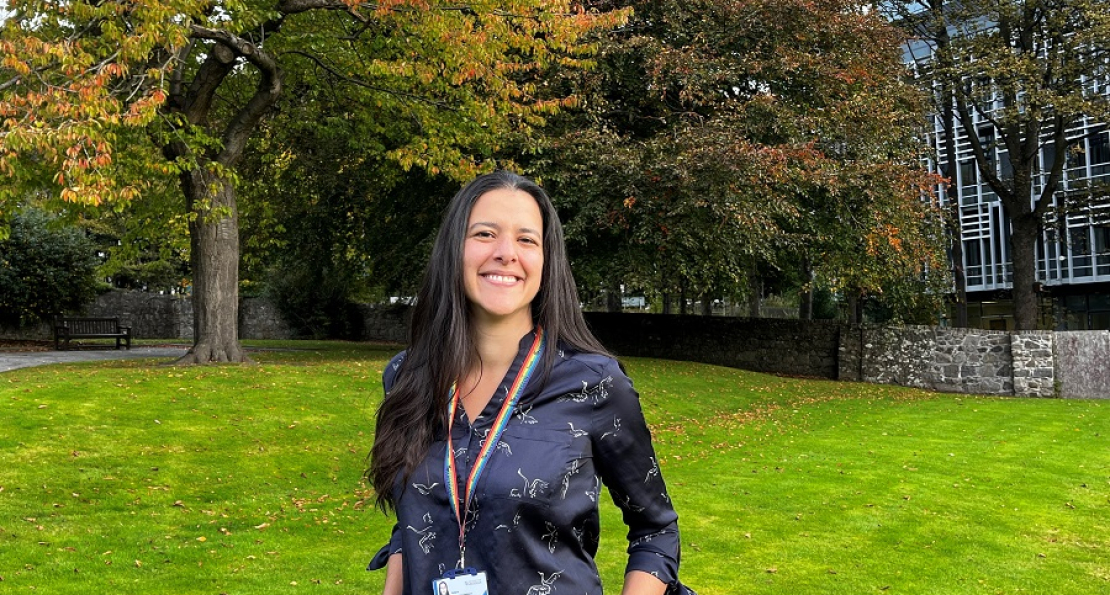From access to public transport to poor internet connections, a group of researchers in Aberdeen are looking to identify 10 priorities for improving cancer care in rural areas of the north-east. Read on to find out what's next...
A researcher who swapped Brazil for Aberdeen is leading a study on rural cancer care in the north-east.
Travel links, internet access and appointment waiting times are often identified as barriers in accessing healthcare in rural areas.
But a team from the University of Aberdeen is now working to identify the specific issues people in the north-east face in accessing cancer care, from diagnosis to treatment and palliative care.
Friends of ANCHOR has awarded £14,665 funding towards the study through its pilot research grants.
There is already evidence that those living in rural areas have worse cancer outcomes than their urban counterparts, particularly regarding mortality and survival.
Dr Natalia Calanzani is leading the CORRECT (Cancer Priorities in Rural and Remote Scotland) study and wants to find out why that is - and what can be done to bridge the gap.
Bridging the gap between urban and rural areas
She said: “We know from previous research that cancer mortality is higher in rural areas compared to urban areas, and people in rural areas live for fewer years after being diagnosed. What we don’t know much about is why.
“Is it because people are older in rural areas, and cancer is more common in older ages? Is it because they seek help later, are diagnosed later, treated later? We have a bit of information in terms of numbers but what we don’t have is a lot on the lived experiences of people and what happens from the moment they notice something may not be right until they get a cancer diagnosis, get treatment, carry on living their lives or die because of their cancer.”
The first phase of the project involves sifting through thousands of articles from across Scotland to find relevant studies that have previously considered cancer experiences in rural and remote parts of the country.
Already the CORRECT team has whittled through 2,303 articles to find more than 60 relevant studies in Scotland.
They’re now doing the same for worldwide reviews of relevant studies, identifying 288 they need to check out of 11,782 studies. They will then compare the cancer experiences in Scotland with experiences in rural and remote areas around the world.
Important to recognise the north-east's specific needs
But Dr Calanzani, a lecturer at the Institute of Applied Health Sciences at the university, stressed that not all the existing research will be relevant to the north-east’s needs.
“Rural areas are not all the same,” she said. “Island communities may not be dealing with the same issues as the Highlands, who may not have the same needs as the north-east. We need to know
what’s happening locally and what is transferable from other areas, and what we can change or adapt.
“From the reviews of the existing studies, we’ll make a list of the issues that need to be investigated further (the research gaps), so we better meet the needs of those living in rural and remote areas in the north-east.”
Together with cancer professionals from across Scotland, a patient and public research interest group at the University of Aberdeen and cancer survivors, the team will identify 10 key priorities for future cancer research in rural and remote Scotland.
Areas likely to be highlighted are recruitment in rural areas – and retaining those GPs – as well as travel times, access and the use of telemedicine.
Dr Calanzani said: “There’s no escaping telemedicine; it has a part to play in rural and urban areas, but there are factors to consider when it is being used. Age, access to technology, wifi signal are all variations that need to be considered for remote communities – there needs to be an understanding of when it works well and where it doesn’t, and for whom or what type of care/consultation.
“We know from previous research carried out at the University of Aberdeen that travel distance can affect access and experiences of care. Distance and transportation challenges are an ongoing problem, reported both in studies published decades ago and studies published as recently as 2023.”
Findings to be shared with National Centre for Remote and Rural Health and Care
The pilot study has been funded by a grant of more than £14,600 from Friends of ANCHOR. This initial research will open the door to further funding opportunities to work on the 10 priorities identified.
The CORRECT team, headed up by Dr Calanzani and Professor Peter Murchie, who has been researching cancer care in rural and remote Scotland for many years, also wants to look at population issues, such as the difference in demographics between rural and urban areas and the type of care people need in rural areas.
The team plans to share findings with researchers, clinicians and policymakers, and the new National Centre for Remote and Rural Health and Care, which launched in October.
The Scottish Government has provided £3million funding for the centre, which seeks to improve the capability of remote, rural and island primary care and enhance community-based services.


